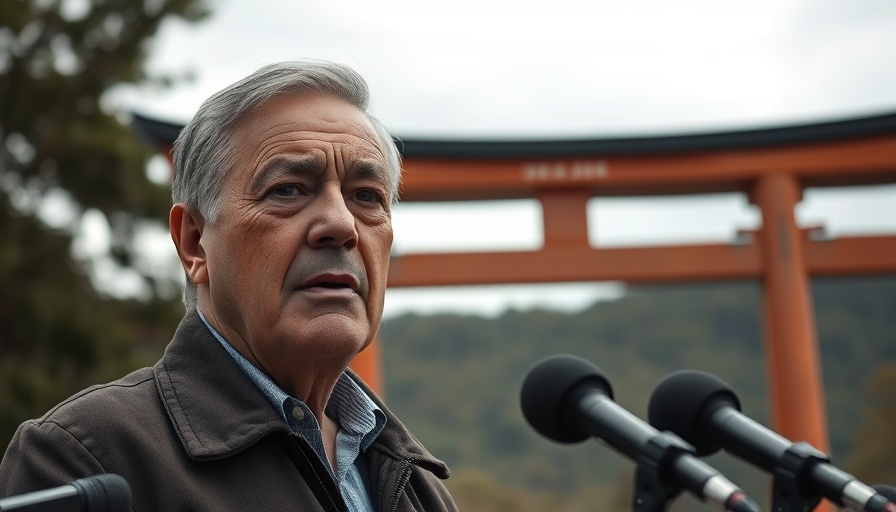
Unveiling the Recent Tensions at Terminal Island
Recent developments surrounding Terminal Island have sparked significant concern among local residents and officials. A growing presence of federal immigration officers, particularly ICE agents, has raised alarms about their activities in a historically sensitive area. Officials from Los Angeles, led by Councilmember Tim McOsker, are now pushing for an investigation into these federal operations, citing reports from local activist groups of agents using the Coast Guard facility as a potential staging ground for raids across Los Angeles County.
Historical Context: The Legacy of Displacement
The situation on Terminal Island resonates deeply with its historical context. Once home to a thriving Japanese-American fishing community, Terminal Island was devastated during World War II. After the bombing of Pearl Harbor, residents faced forced removal, driven by wartime paranoia and government orders. Just as federal agents cleared communities under the guise of national security, similar tactics are now being suggested in the context of current immigration enforcement. Activists have drawn parallels between the WWII-era removals and today's immigration actions, emphasizing concerns about civil liberties and community rights.
The Community Speaks: Voices of Concern
At a recent press conference, community members and activists shared their fears and observations. They reported seeing federal officers in tactical vests patrolling the area, heightening concerns over increased immigration enforcement. Teacher Maya Suzuki-Daniels, speaking on behalf of local groups, described how these actions may evoke painful memories of the past. "Seeing these agents invokes a sense of historical trauma," she said. "We’re worried about the implications for our community and its safety." Such sentiments resonate with many in San Pedro, who feel a tangible connection to the island's past.
Conflicting Narratives: Official Denials
However, federal agencies have denied these claims. Scott Taylor, a public affairs officer with the Federal Bureau of Prisons, labeled the claims as "100% false". Meanwhile, a federal source insists that while agents may be present, they are not utilizing the Coast Guard’s facilities for operational purposes. This contradiction raises questions about transparency and communication between federal authorities and local leaders. The perception of federal presence can be detrimental to community-relations, particularly in an area with a complex history of immigration and law enforcement.
The Legal Framework in Question
The maneuvering by federal agencies at Terminal Island touches upon broader topics regarding the legal frameworks governing immigration enforcement. Debates over jurisdiction and protocol have intensified, particularly as local authorities seek clarity on how federal operations intersect with city governance. As McOsker seeks a formal report on these practices, the implications are significant not only for Terminal Island residents but also for broader discussions surrounding immigration policies and enforcement practices across the nation.
Community Action: A Call for Vigilance
In light of these developments, community leaders encourage residents to remain vigilant. Understanding one's rights and establishing open lines of communication with local authorities are pivotal in navigating these increasingly complex dynamics. Activist groups are calling for continued engagement and education, fostering unity among residents to resist any decrease in civil rights. This emerging community response signifies a proactive stance toward maintaining freedoms and advocating for humane immigration practices.
Looking Ahead: Community Resilience and Advocacy
As this situation develops, the story of Terminal Island serves as a crucial reminder of the intersectionality of history, community, and policy. By advocating against oppressive practices and shining a light on the past, concerned citizens seek to forge a future that honors human rights. Whether through activism or increased awareness, the community's resilience will play a pivotal role in shaping ongoing discussions surrounding immigration laws and their enforcement.
Ultimately, these events call for heightened engagement. It is essential for community members to not only monitor these changes but also to act, ensuring their voices are heard in the dialogue about immigration policies that affect them deeply.
 Add Row
Add Row  Add
Add 




Write A Comment